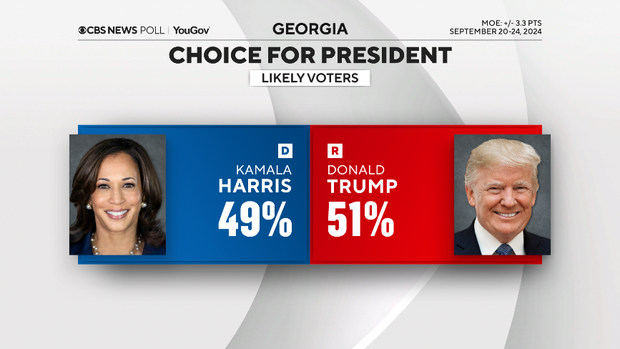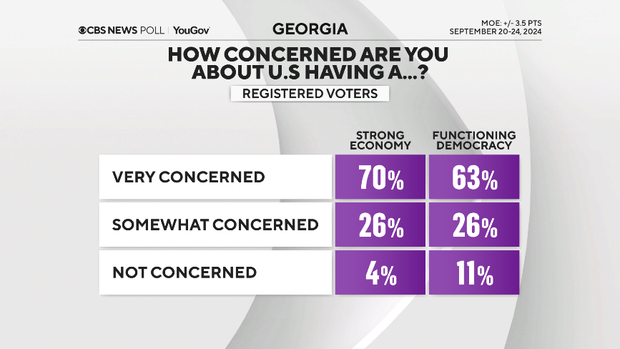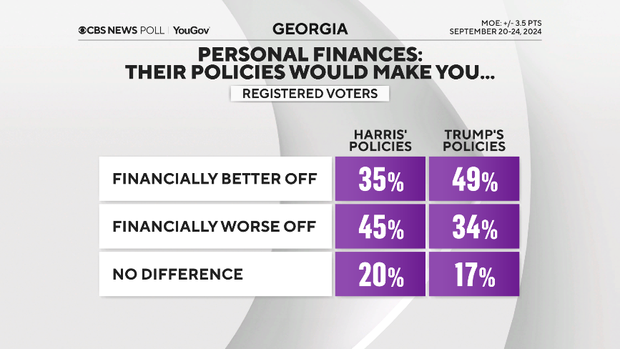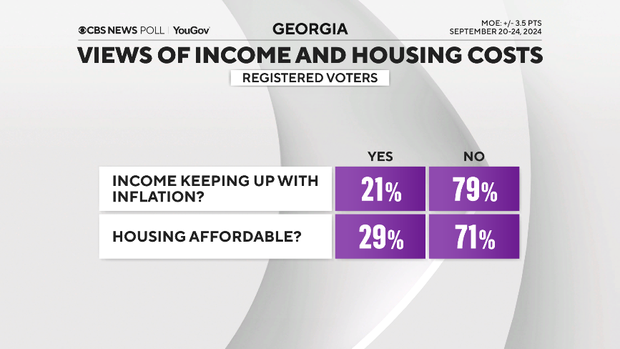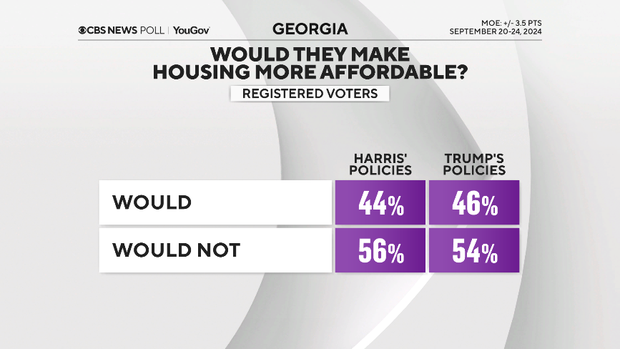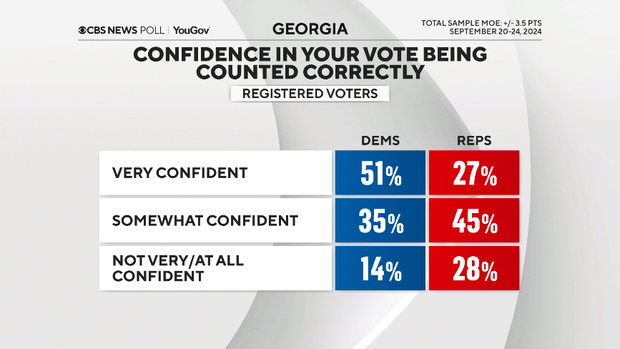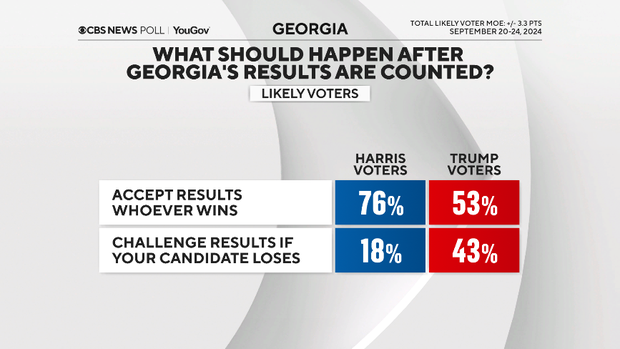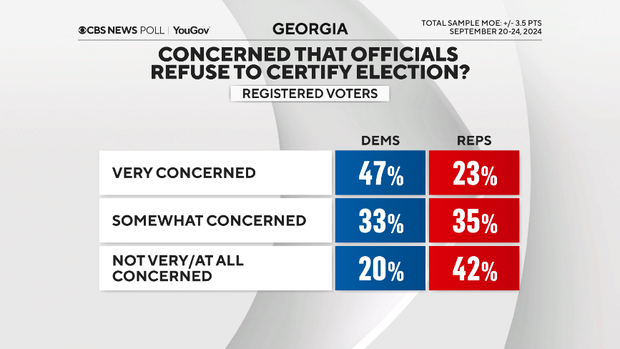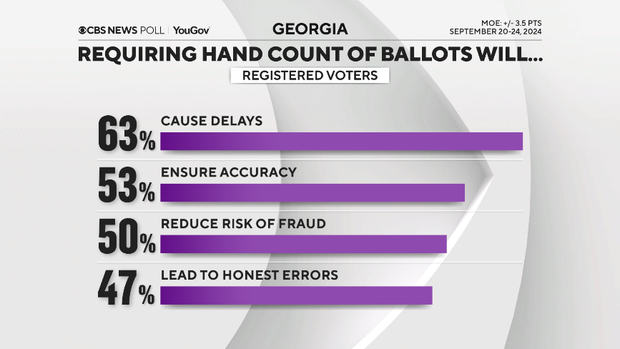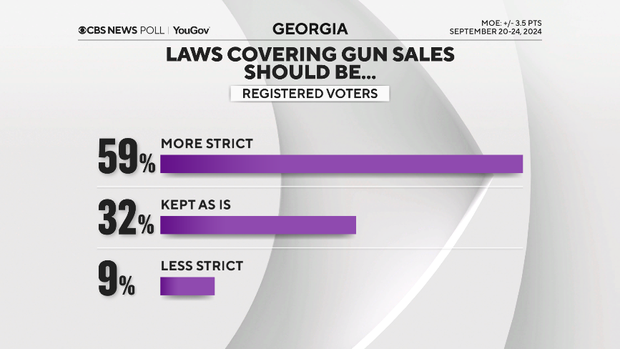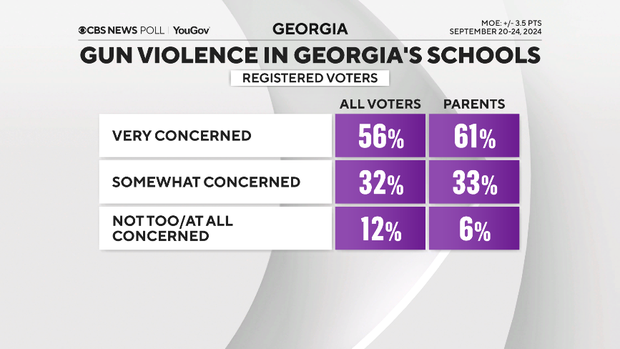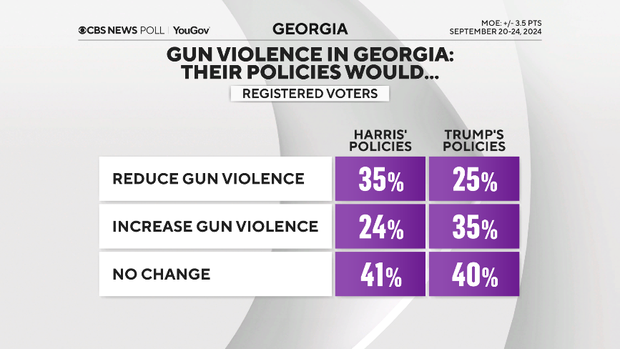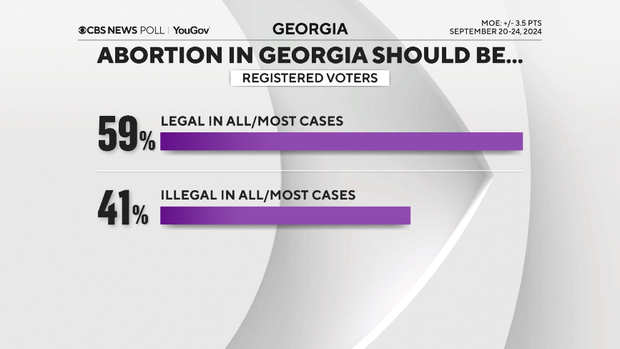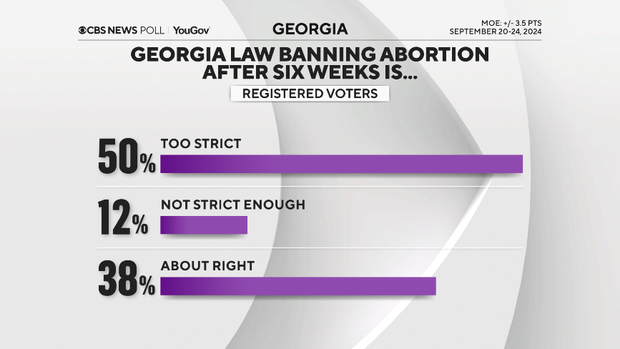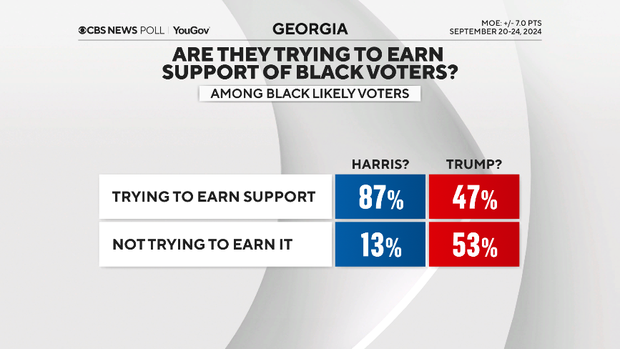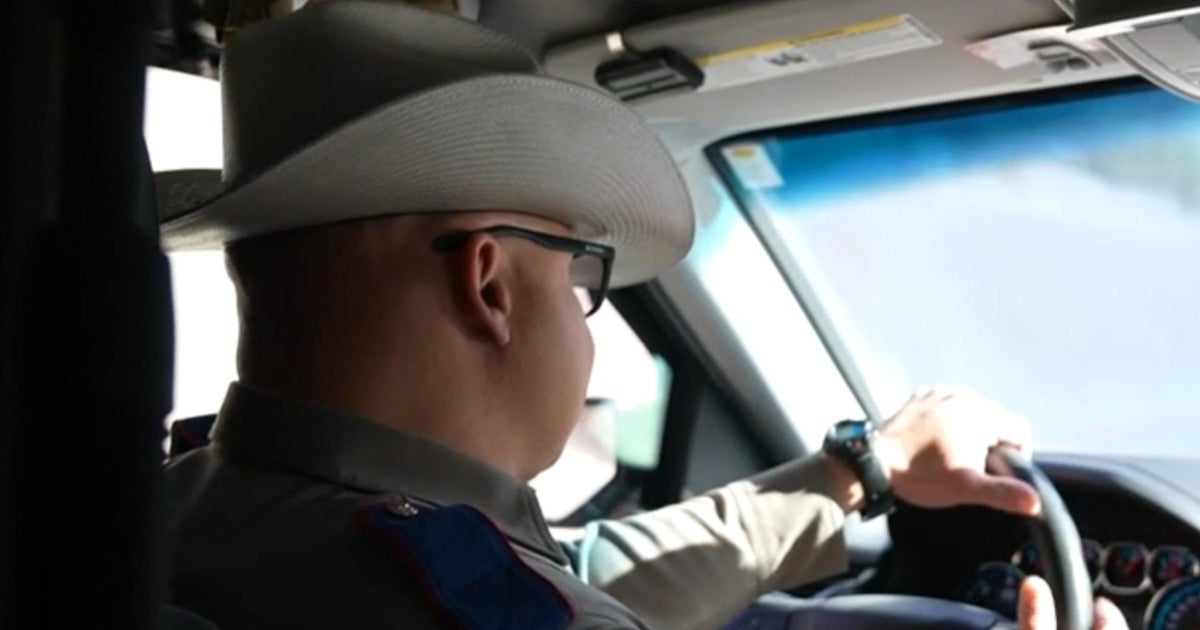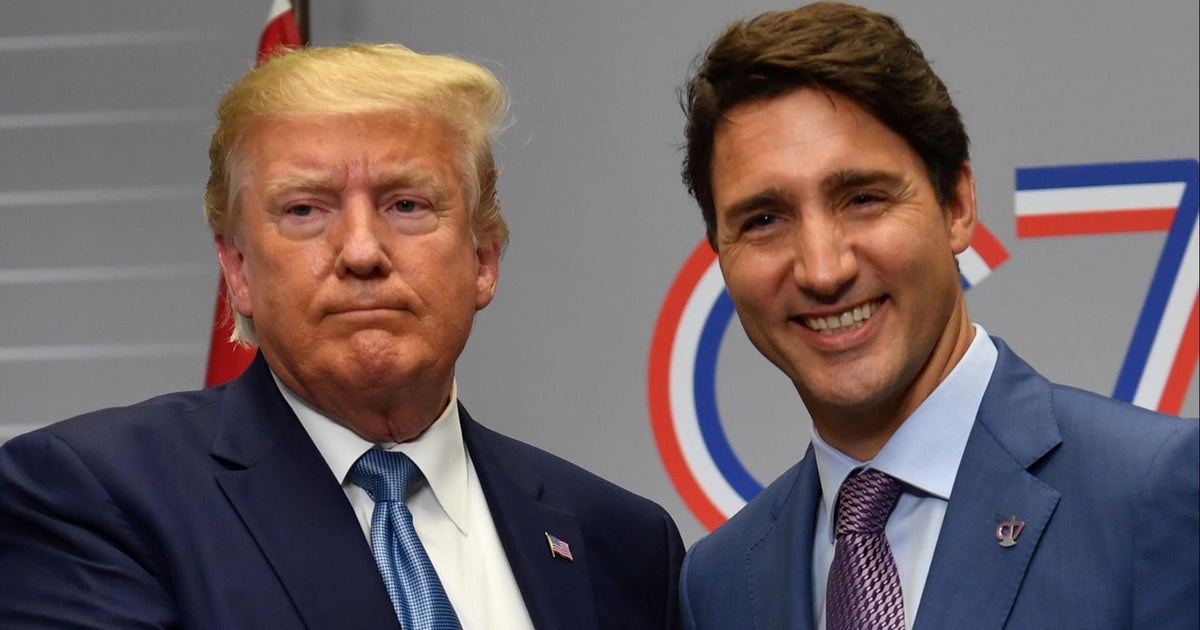CBS News
CBS News poll finds tight race in Georgia, where Trump has 2-point edge over Harris

It’s a toss-up race for Georgia’s 16 electoral votes. Four years after the state narrowly went blue for the first time in decades, the presidential race there remains tight. Donald Trump is currently at 51% in preferences of likely voters, with Kamala Harris just two points behind him.
Financial concerns continue to give Trump an advantage, but not to quite the same degree it did when Joe Biden was his opponent. Meanwhile, widespread concern about democracy keeps Harris competitive. Georgia’s voters are divided over recent actions by the State Election Board, and there are stark partisan divides in confidence in the election system, as well as in what should happen after the votes are counted in November.
Economy and finances
Many feel worse off financially than they were before the COVID pandemic. About half of registered voters in the state say Trump’s second-term policies would make them better off financially — similar to the number when we checked in this spring. Only a third say the same of Harris. While she trails Trump on this measure, it’s noticeably better than President Biden did in the state.
Rising costs are still a top concern across Georgia, with housing prices seen as particularly burdensome. Eight in 10 voters say their income isn’t keeping up with inflation, and seven in 10 say housing in their part of Georgia is unaffordable. On the latter issue, Harris and Trump are seen by roughly equal numbers as likely to help bring housing costs down.
Democracy and elections
As Georgia continues to deal with the aftermath of the 2020 election, most voters say the state of democracy is a major factor in their vote this year. While economic issues rank higher as a factor, most voters feel “very concerned” about whether the U.S. will have a functioning democracy when they think about the next few years. And this group is leaning toward Harris.
As far as elections in Georgia itself, Democrats are much more confident than Republicans that their votes will be counted correctly this year. Most Republicans continue to give credence to debunked claims of widespread fraud in 2020. Four in 10 Trump voters would prefer Georgia’s 2024 results be challenged and investigated if Harris wins after the votes are counted. Nearly all Republicans don’t view Mr. Biden’s win in 2020 as legitimate.
Democrats are more concerned than Republicans that some of Georgia’s election officials will refuse to certify the election results for political reasons.
The State Election Board recently voted to require election workers to hand count ballots on election night this November, in addition to a machine count. Most voters say this new rule will cause delays in finding out results. They are more split on whether it will ensure accuracy or reduce risk of fraud, with views heavily divided by partisanship.
Majorities of Democrats feel the board did this for political reasons and to deliberately interfere with the election process. Republicans by and large feel it was to ensure elections are secure.
Other issues: guns and abortion
Just a few weeks after the deadliest school shooting in state history, most voters say they are very concerned about the possibility of gun violence in schools. That’s especially true of parents in the state, and majorities across party lines are at least somewhat concerned.
Six in 10 say laws covering gun sales should be made more strict in Georgia. Harris has a bit of an advantage on the issue, but neither candidate gets many voters who say their policies would reduce gun violence in the state.
Most Georgia voters support legal abortion, but their views on the details are more complicated.
Six in 10 want abortion in Georgia to be legal in most or all cases. That majority includes a third of Republicans. However, fewer call Georgia’s current law banning most abortions after around six weeks of pregnancy, “too strict.” Only half of voters statewide say so, with four in 10 saying the law is about right.
And just under half say being pregnant in Georgia is becoming more dangerous since the overturn of Roe v. Wade. They are backing Harris over Trump by 4 to 1, while voters who don’t feel this way about being pregnant are the mirror image in their vote choice.
There’s agreement across party lines that Harris would try to pass national legislation making abortion legal, but voters divide on what Trump would do. Most Democrats say he would try to pass a national ban, while most Republicans say he would leave it to the states to decide.
Abortion and gun policy are more salient on the left than the right these days. In fact, they rate about as highly as the economy as major factors in the vote choice of Harris supporters.
About half of registered voters say Harris is more liberal than they would like her to be, a notch higher than the four in 10 who say Trump is too conservative. However, this flips among self-described moderates, who are more likely to see Trump as too conservative than Harris as too liberal.
Key voter groups
The Atlanta metro area and its diverse suburbs were key to Democrats’ statewide victories in 2020 and 2022. At the moment, Harris isn’t matching Mr. Biden’s 2020 support in these counties.
And while Black voters are backing her in large numbers, they aren’t doing so at quite the same rates they voted for Mr. Biden four years back. Harris does slightly better among Black women than Black men, and even a small increase in Black support for her would make the race dead even.
Nearly nine in 10 Black voters feel Harris is trying to earn the support of Black voters. Only about half say so of Trump — that number is down from this spring, when most felt he was.
Trump leads Georgia’s men by double digits, while Harris leads women more narrowly — that is producing a gender gap on par with what we saw in 2020.
There’s some room for movement in the electorate, but not a lot. About one in 10 likely voters in the state profile as persuadable, using a fairly broad definition of being unsure of one’s choice or willing to consider the other candidate. That means nine in 10 are locked into their choice, and even many of the persuadable will stick with the way they’re leaning now. That all points to the importance of turnout, including new registrations.
With mail balloting underway in Georgia, Democrats are poised to bank a small lead in the coming weeks. Their voters make up a majority of those who plan to vote by mail. In-person early voting, which begins in mid-October, remains the most popular way of casting a ballot in the state. And those who plan to vote this way divide evenly between Trump and Harris. More voters are set to vote on Election Day this year than did so in 2020, and as we saw back then, this group favors Trump by a wide margin.
Jennifer De Pinto and Fred Backus contributed to this report.
This CBS News/YouGov survey was conducted with a statewide representative sample of 1,441 registered voters in Georgia interviewed between September 20-24, 2024. The sample was weighted according to gender, age, race, education and geographic region, based on U.S. Census data and voter files, as well as to past vote. The margin of error for registered voters is ±3.5 points.
CBS News
Biden sets new climate goal for slashing U.S. greenhouse gas emissions
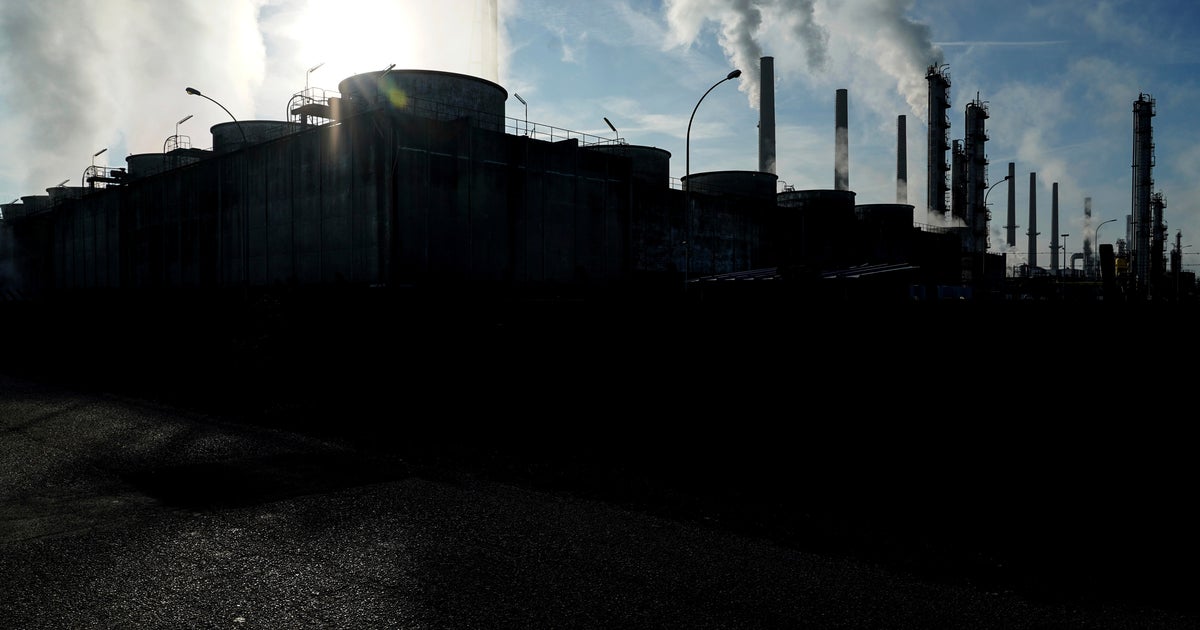
In the final days of his administration, President Biden has set a new climate goal for slashing U.S. greenhouse gas emissions. However, it comes as his successor, President-elect Donald Trump, has signaled he is not interested in global climate negotiations.
The U.S. formally submitted its new goal Thursday to the United Nations. It calls for a 61% to 66% reduction in net greenhouse gas emissions by 2035 compared to 2005 levels, the White House said, with an overarching goal of achieving net zero emissions by no later than 2050.
The new goal is part of the Paris Agreement, under which member nations must update their emission cut targets — known as Nationally Determined Contributions, or NDCs — every five years.
The Paris accord requires countries to set voluntary targets for reducing greenhouse gases such as carbon dioxide. The only binding requirement is that nations accurately report on their efforts. First signed in 2016 by nearly 200 nations, it seeks to limit global warming to no more than 1.5 degrees Celsius above pre-industrial levels.
The new climate commitment “marks an ambitious capstone to President Biden’s climate legacy,” the White House said in a news release, adding that it will help grow a new clean energy economy focused on investment, innovation, and jobs.
“The United States’ new climate commitment offers a clear path forward for states, cities, businesses, and other leaders dedicated to ramping up action over the next four years,” said Debbie Weyl, U.S. acting director for the nonprofit environmental group the World Resource Institute, in a statement. “Even though the Trump administration may not lift a finger to deliver on this plan, it sets a north star for what the U.S. should be aiming for and could help guide the federal government’s priorities once Trump leaves office in 2029,” Weyl said.
In 2017, then-President Trump announced he was withdrawing the U.S. from the Paris Agreement, a process which took until nearly the end of his first term to complete. However, Mr. Biden fulfilled a campaign vow by rejoining the Paris Agreement on the first day of his own administration in early 2021.
Trump has long championed the fossil fuel industry, questioned the science of climate change and weakened other environmental protections.
This year, his campaign said Trump would pull the U.S. from the Paris Agreement a second time.
Last month in Azerbaijan at the annual United Nations climate summit known as COP29, participants adopted a $300 billion annual deal that will go towards helping developing countries wean themselves off coal, oil and gas, and help them adapt to future warming and pay for the damage caused by climate change’s extreme weather.
Mary Cunningham and
contributed to this report.
CBS News
Gisèle Pelicot’s husband found guilty in mass rape trial in France

A judge in France on Thursday found the former husband of Gisèle Pelicot, who admitted to drugging and raping her repeatedly over the course of almost a decade and inviting dozens of other men to assault her as well, guilty of aggravated rape. Over the course of her trial, Pelicot — who insisted her full name be published and proceedings be made public — has been praised for her courage and become a symbol of the fight against sexual violence in France and around the world. The judge on Thursday was reading out verdicts for dozens of other men also accused of raping her.
Pelicot arrived Thursday at the court in Avignon, southeast France, where crowds had gathered outside holding signs saying: “Thank you for your courage.”
The trial began on Sept. 2, and almost every day, Pelicot came face to face with her former husband, Dominique, or one of the 49 other men charged with raping her. One other man faced a charge of aggravated sexual assault. She insisted that videos submitted as evidence, made by her ex-husband showing men sexually assaulting her while she appeared to be unconscious, be shown in open court.
The assaults took place between 2011 and 2020, when Dominique Pelicot was taken into custody. Police found thousands of photos and videos of the abuse on his computer drives, which helped lead them to other suspects. Some of the men testified they thought the unconscious woman was OK with it, or that her husband’s permission was enough.
“Gisèle Pelicot thinks that this shock wave is necessary, so that no one can say after this: ‘I didn’t know this was rape,'” her attorney, Stéphane Babonneau, told The Associated Press.
“It’s not for us to feel shame — it’s for them,” Pelicot said in court, referring to the attackers. “Above all, I’m expressing my will and determination to change this society.”
Controversial French laws
Pelicot’s case triggered protests across France, and there was hope among some demonstrators that the case could lead to changes in controversial French laws governing sexual consent.
France introduced a legal age of sexual consent in 2021 after a public outcry over the rape of an 11-year-old schoolgirl by a man who was initially convicted on a lesser charge. Since then, sex with anyone under the age of 15 has been viewed as non-consensual, but French law does not refer to consent in cases involving older victims.
Under French law, rape is defined as penetration or oral sex using “violence, coercion, threat or surprise,” without taking consent into account, according to the Reuters news agency. Prosecutors must, therefore, prove an intention to rape if they are to be successful in court, legal experts told Reuters.
Just 14% of rape accusations in France lead to formal investigations, according to a study by the Institute of Public Policies.
“Why don’t we manage to obtain convictions? The first reason is the law,” legal expert Catherine Le Magueresse told Reuters. “The law is written in such a way that victims must comply with the stereotype of a ‘good victim’ and a ‘true rape’: an unknown attacker, use of violence, and the victim’s resistance. But it is only true for a minority of rapes.”
“I’m trying to understand”
Speaking in court during the trial, Pelicot, who is 72, talked about how she had thought she was in a loving marriage with her husband and would never have guessed that he was drugging her.
“We would have a glass of white wine together. I never found anything strange about my potatoes,” Pelicot told the court.
“We finished eating. Often when it’s a football match on TV, I’d let him watch it alone. He brought my ice cream to my bed, where I was. My favorite flavor — raspberry — and I thought: ‘How lucky I am. He’s a love.'”
She said she didn’t have any sensation of being drugged.
“I never felt my heart flutter. I didn’t feel anything. I must have gone under very quickly. I would wake up with my pajamas on,” Pelicot told the court, adding that she would sometimes wake up “more tired than usual, but I walk a lot and thought it was that.”
“I’m trying to understand,” she said, “how this husband, who was the perfect man, could have got to this.”
CBS News
Teamsters going on strike against Amazon at several locations nationwide

The International Brotherhood of Teamsters says workers at seven Amazon facilities will begin a strike Thursday morning in an effort by the union to pressure the e-commerce giant for a labor agreement during a key shopping period.
The Teamsters say the workers, who authorized walkouts in the past few days, are joining the picket line after Amazon ignored a Dec. 15 deadline the union set for contract negotiations. Amazon says it doesn’t expect any impact on its operations during what the union calls the largest strike against the company in U.S. history.
The Teamsters say they represent nearly 10,000 workers at 10 Amazon facilities, a small portion of the 1.5 million people Amazon employs in its warehouses and corporate offices.
Amazon is ranked No. 2 on the Fortune 500 list of the nation’s largest companies.
At a warehouse in the New York City borough of Staten Island, thousands of workers who voted for the Amazon Labor Union in 2022 and have since affiliated with the Teamsters. At the other facilities, employees – including many delivery drivers – have unionized with them by demonstrating majority support but without holding government-administered elections.
The strikes happening Thursday are taking place at an Amazon warehouse in San Francisco and six delivery stations in southern California, New York City, Atlanta and the Chicago suburb of Skokie, Illinois, according to the union’s announcement. Amazon workers at the other facilities are “prepared to join” them, the union said.
“Amazon is pushing its workers closer to the picket line by failing to show them the respect they have earned,” Teamsters General President Sean M. O’Brien said in a statement.
“If your package is delayed during the holidays, you can blame Amazon’s insatiable greed. We gave Amazon a clear deadline to come to the table and do right by our members. They ignored it,” he said.
The Seattle-based online retailer has been seeking to re-do the election that led to the union victory at the warehouse on Staten Island, which the Teamsters now represent. In the process, the company has filed a lawsuit challenging the constitutionality of the National Labor Relations Board.
Meanwhile, Amazon says the delivery drivers, which the Teamsters have organized for more than a year, aren’t its employees. Under its business model, the drivers work for third-party businesses, called Delivery Service Partners, who drop off millions of packages to customers everyday.
“For more than a year now, the Teamsters have continued to intentionally mislead the public – claiming that they represent ‘thousands of Amazon employees and drivers’. They don’t, and this is another attempt to push a false narrative,” Amazon spokesperson Kelly Nantel said in a statement. “The truth is that the Teamsters have actively threatened, intimidated, and attempted to coerce Amazon employees and third-party drivers to join them, which is illegal and is the subject of multiple pending unfair labor practice charges against the union.“
The Teamsters have argued Amazon essentially controls everything the drivers do and should be classified as an employer.
Some U.S. labor regulators have sided with the union in filings made before the NLRB. In September, Amazon boosted pay for the drivers amid the growing pressure.


